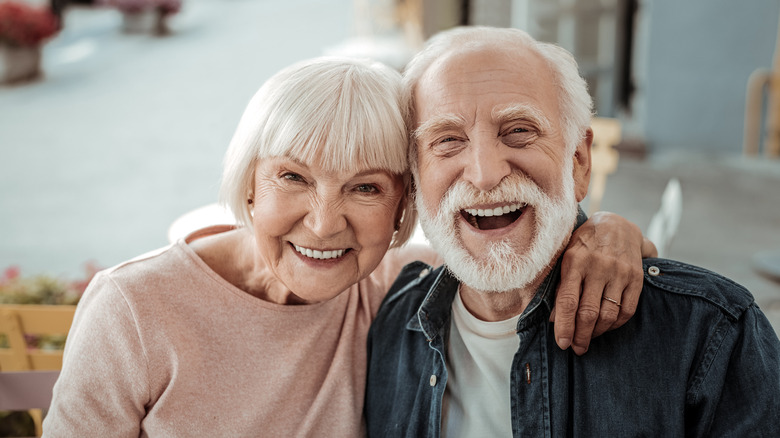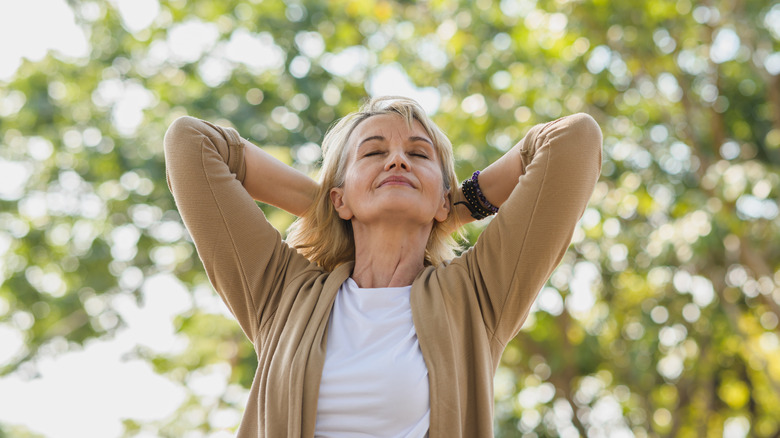Do Women Age Faster Than Men?
We've probably all heard (and groaned at) the comment that, as we age, "Men look more distinguished and women just look older." Never mind the shallow societal double standard that's implied in those words: Do women actually look older than men of the same age?
There are a lot of deep biological differences between men and women that affect nearly every aspect of our lives. We even tend to get different diseases, and some forward-thinking scientists have suggested that in the future the prescription of medicines could be gender-specific (via Radio New Zealand).
For both men and women, the rate and way in which aging occurs depend on an interplay of genetics, lifestyle, nutrition, and environment. But there are sex-specific differences, too. Around the world, women generally tend to live around four years longer than men, per the BBC. Theories about why women live longer vary — from the fact that men tend to work in more active jobs (leading to higher mortality in their younger years) to the fact that women are more likely to get health screenings and check-ups or respond to stress better. Tom Kirkwood, who studies the biological basis for aging at Newcastle University in the U.K., says, "Of course, social and lifestyle factors do have a bearing, but there does appear to be something deeper ingrained in our biology," (via BBC).
A healthy lifestyle can help manage aging
The fact that women tend to live longer doesn't mean they look younger as they age. Visible signs of aging between men and women seem to progress at a similar rate until a woman hits menopause. Then, while men continue along at their consistent and gradual rate, women ride a few years of a hormonal roller-coaster as their estrogen levels drop and their skin loses collagen at much faster rates (via The Sun). Sonja Windhager, who led research on aging at the University of Vienna, told The Sun, "Men and women age similarly up to the age of 50. It's a linear progression. But at the age of 50, for women, it goes really fast. It doesn't speed up at 50 for men." It's no wonder that the $83 billion anti-aging products industry is marketed mainly toward women (via GlobeNewswire).
Aging is inevitable, of course. But women can help manage physical aging by following the doctor's orders for any age — exercising, eating a healthy diet, managing stress, and especially not smoking. Kenneth Howe, M.D., from Wexler Dermatology, in New York City, warns, "Remember that smoking contributes to skin aging in two very significant ways. One, it decreases collagen content of the skin ... It results in thinner, more fragile skin. Second, the act of smoking exposes certain areas (such as the skin around the mouth) to repetitive movements that crease and wear out the skin," (via Real Simple).


